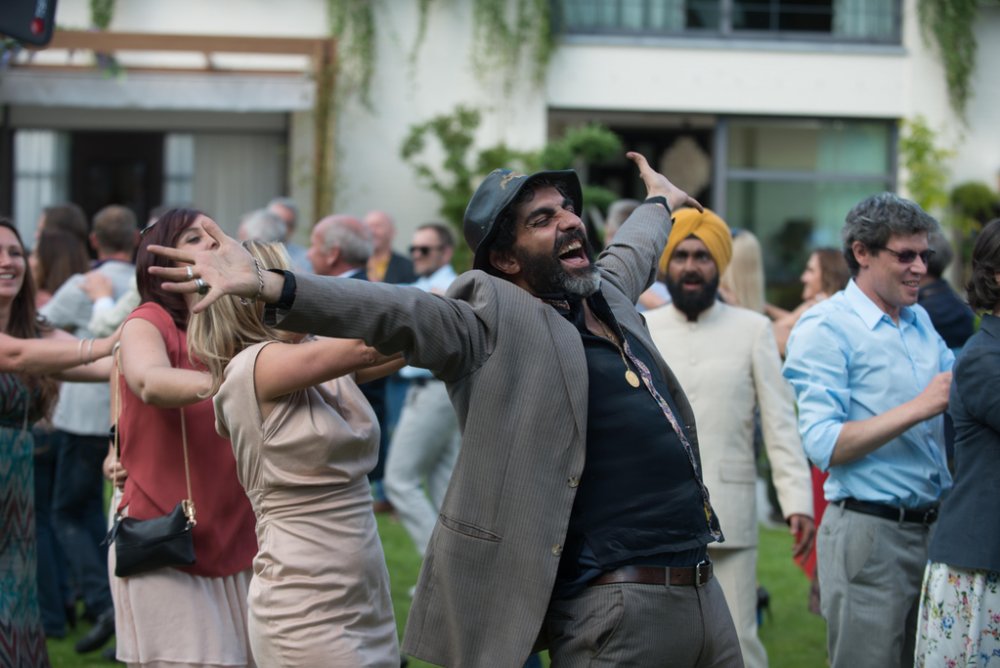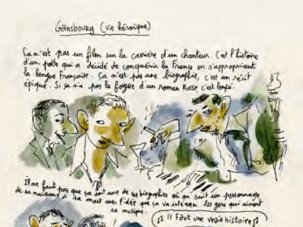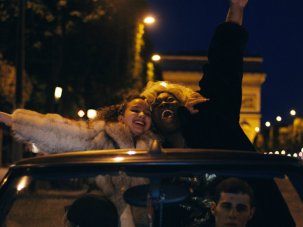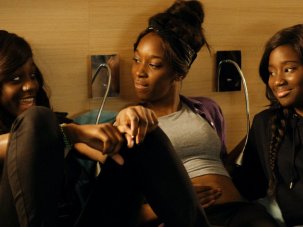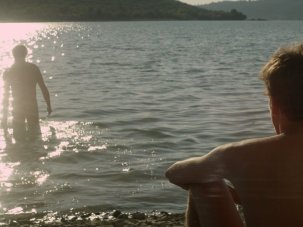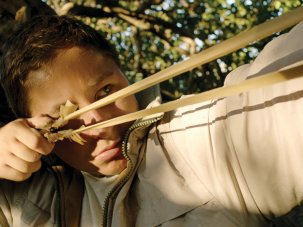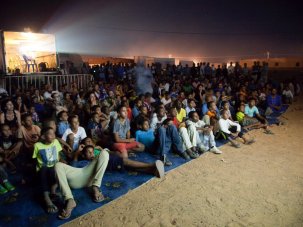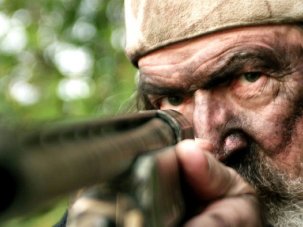On 5 April 2017, three weeks before a French general election in which a National Front candidate is expected to make the second round and has an outside chance of acceding to the presidency, Philippe de Chauveron’s À bras ouverts (With Open Arms) hit French screens. The film tells the story of a rich liberal journalist (Christian Clavier) who, while decrying the treatment of the Roma community during a stint on a political TV show, boasts that he would be willing to house a Roma family in his own home.
His words come back to haunt him when a Roma family turn up on his doorstep, demanding that he take them in. The family are presented as loud, vulgar, gross, thieving and altogether incapable of living in harmony with a civil society. One walks a pig around on a leash; another, presented as mentally disabled, kills moles with his teeth; the father of the family, when told not to beg or steal, exclaims, “But what else can I do?”. Le Monde has called the film “putrid”; for Hendy Bicaise, reviewing it on Slate, it’s “not just a bad film, but an unacceptable work”. The film had already caused outrage before it was even released, when it emerged that its working title was ‘Sivouplééé’ (s’il vous plaît): a mocking reference to a way of begging for money.
The question of Roma integration, and the treatment of the travelling community, has been a hot-button topic in France for years. In 2013, then home secretary Manuel Valls caused a scandal with his comments on Roma people, when he claimed that they have “ways of life that are extremely different to our own, and in clear opposition to ours. We all know this, the proximity of these [Roma] camps causes begging and thefts, and therefore delinquency.” For Marine Le Pen, also speaking in 2013, the situation between Roma travellers and other French citizens was of the order of “a civil war”; speaking on national television, she also termed Roma people “delinquents” and called for them to be “sent back”.
The release of A bras ouverts in the run-up to the election appears therefore to have been calculated to surf on controversial questions of immigration and integration raised during the presidential campaign. Neither is the film’s release inconsequential: Qu’est-ce qu’on a fait au bon Dieu? (Serial (Bad) Weddings), by the same actor-director team, was the biggest box office hit in France in 2014, and the sixth biggest domestic hit of all time, with 12 million tickets sold.
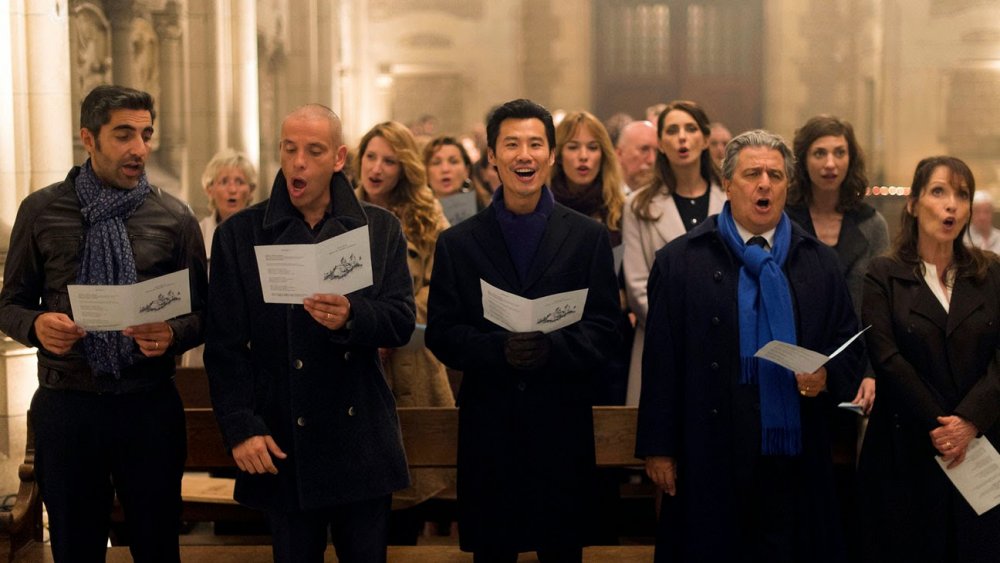
De Chauveron’s Qu’est-ce qu’on a fait au bon Dieu? (Serial (Bad) Weddings) pokes fun at a white couple whose sons in law are anything but white
It also used a high-concept racist dilemma for its storyline: a well-to-do white couple (Christian Clavier again, and Chantal Lauby) find themselves in a fix when their daughters pair off with non-white partners: one to a Muslim man, another to a sephardic Jew, a third to a Chinese man. The couple place all their hope in their fourth daughter marrying a white man, but he turns out to be Ivorian. (Between Qu’est-ce qu’on a fait au bon Dieu? and A bras ouverts De Chauveron made Débarquement immédiat! (Last Call for Nowhere, 2016), a comedy centred on the ever-hilarious topic of deportations.)
French film has recently become something of a battleground for a certain type of politics. The poster of Alain Guiraudie’s Stranger by the Lake (L’inconnu du lac, 2013) was removed from rightwing-held councils Versailles and St-Cloud, provoking cries of censorship. In 2014, the rightwing group Civitas called for a boycott of Céline Sciamma’s Tomboy (2011) when the film aired on television, and the film also got caught up in debates about the government’s stance on gender theory, which had recently been established as a curriculum subject in schools. Earlier this year, the National Front denounced Lucas Belvaux’s film Chez nous, a pointed satire of the National Front, and the party’s scion Marion Maréchal-Le Pen used the opportunity to call for taxpayers’ money to stop subsidising French film.
These are films with minimal domestic reach, however. The central question of French cinema’s role in conveying political ideas surely must focus on popular comedies, and in particular on a vein of bigotry that aligns them with far right ideology.
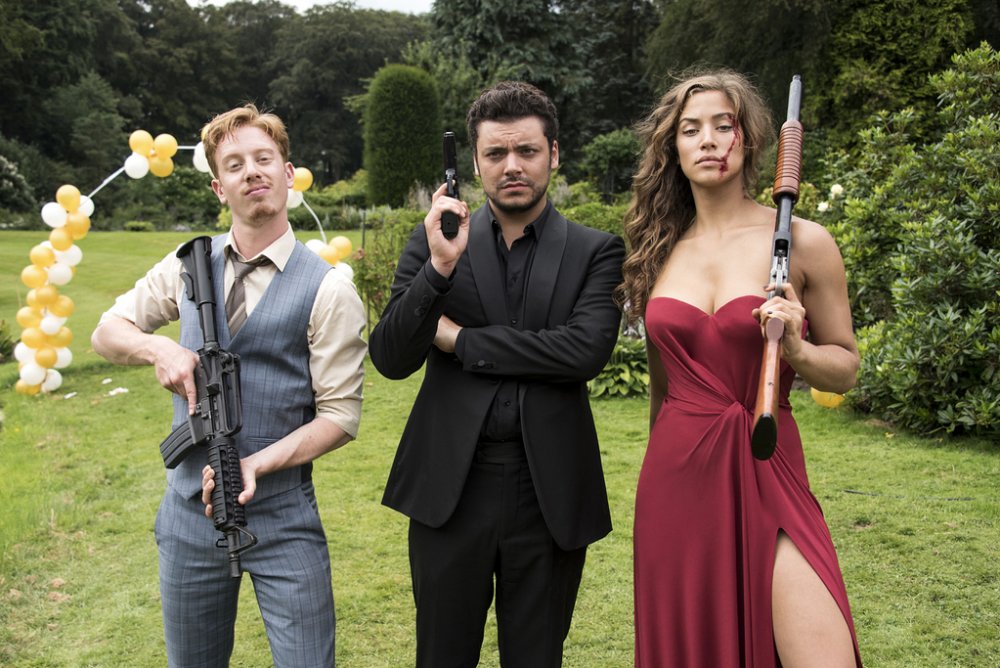
Gangsterdam (2017)
The week before A bras ouverts hit cinemas also saw the release of Gangsterdam, starring Kev Adams, the bafflingly popular French comedian. The publication 20 Minutes called Gangsterdam “an abominable film”, the association Osez le Feminisme denounced a line in the film about “a cool rape – not a sad rape where they blub and shout and complain”. Isabelle Regnier notes in a review in Le Monde that the way the film covers its offences by pretending they are a heightened caricature for comical purposes is used in defence of “a whole raft of contemporary French comedy”.
Kev Adams, the star of Gangsterdam, is one of a few big French players: he also starred in the biggest domestic box office hit of 2013, Les Profs (Serial Teachers, also starring Christian Clavier) and the two biggest domestic box office hits of 2015: Les Profs 2 and Les Nouvelles aventures d’Aladin, in which he adopted brownface to play the title character. Adams purposefully plays on questions of race, gender and sexuality in his work, causing controversy in 2016 for a ten-minute clip of his stand-up show in which, dressed as a Chinese man, he accumulates racist stereotypes, doing a ‘Chinese voice’ and ‘Chinese eyes’, and talking about eating dog meat. The audience laughs along happily.
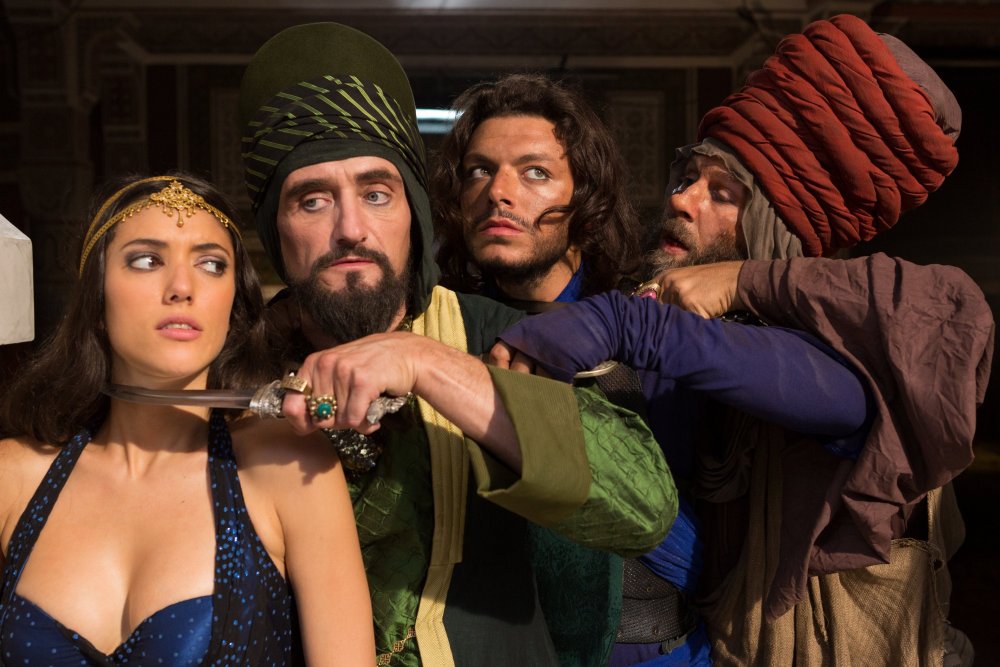
The New Adventures of Aladdin (Les Nouvelles aventures d’Aladin, 2015)
There is a disconnect here. To millions around the world, the phrase ‘French cinema’ is synonymous with a certain type of liberal arthouse movies, usually starring Juliette Binoche or Isabelle Huppert. It isn’t difficult to see, in the chasm between those films and the popular comedies that are the bread and butter of the French box office, an emblem of the state of French politics in 2017. Even as the critics deride these movies (Télérama called Les Profs “a rehearsal of tacky comedy clichés”), they connect with a certain audience, and even as the political establishment scorns and reviles the National Front, so an element of the French electorate clearly feels that Marine Le Pen’s hateful discourse speaks to them, and are prepared to turn out at the ballot box to say so. This isn’t to say that the two groups totally intersect: but it seems obvious that there is a split between groups in French society that is reflected both at the box office and in politics.
This new vein of French comedy traces its roots back to the Dany Boon-directed Bienvenue chez les Ch’tis (2008). An amiable, simplistic film set in rural, post-industrial northern France, Les Ch’tis seems to have demonstrated quite clearly that there was an appetite for film in provincial France that was perhaps being insufficiently catered to: a staggering commercial success that took the whole film industry by surprise, it now stands as France’s biggest domestic box office success of all time.
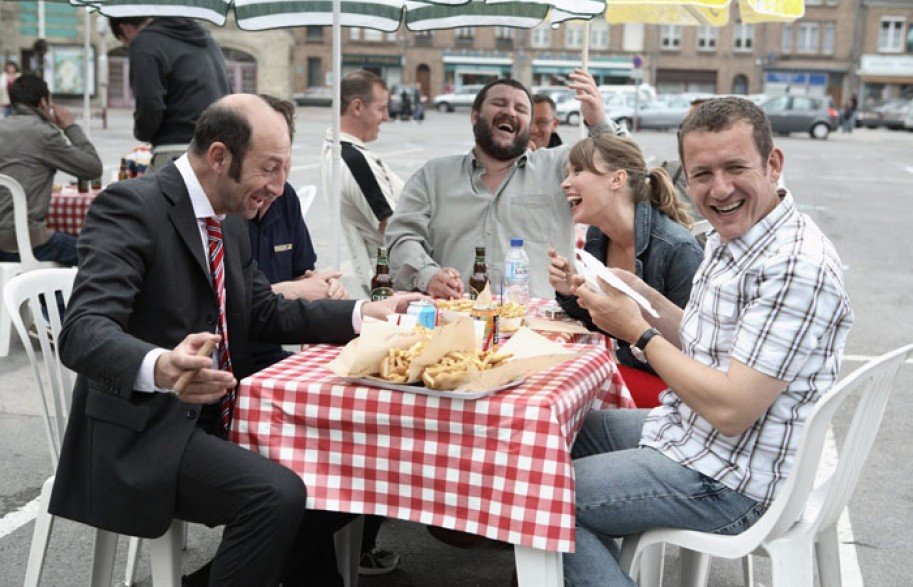
Bienvenue chez les Ch’tis (2008)
On its heels followed Les Tuche and Les Tuche 2, starring Jean-Paul Rouve, who was also in Aladin and who started out in Les Robins des Bois, the same comedy troupe as Les Profs’ Pierre-Francois Martin-Laval. Time for a quick primer on French comedians.
Sketch this
The genesis of contemporary French comedy lies, broadly speaking, in the emergence of the comedy troupe Le Splendid in the 1970s and 80s. Christian Clavier was a founding member, alongside such actors as Josiane Balasko, Thierry Lhermitte, Gerard Jugnot and Michel Blanc. The troupe hit the big time in 1978 with Les Bronzés (French Fried Vacation), a satire of Club Med-going French petit-bourgeois, followed by Les Bronzés font du ski (1978) and Le Père Noël est une ordure (1982).
The Bronzés films in particular are tricky: while they ostensibly critique a type of corny, tone-deaf French milieu, and are co-written by and co-star women (Balasko and Marie-Anne Chazel), they have their cake and eat it by also being broad and casually sexist.
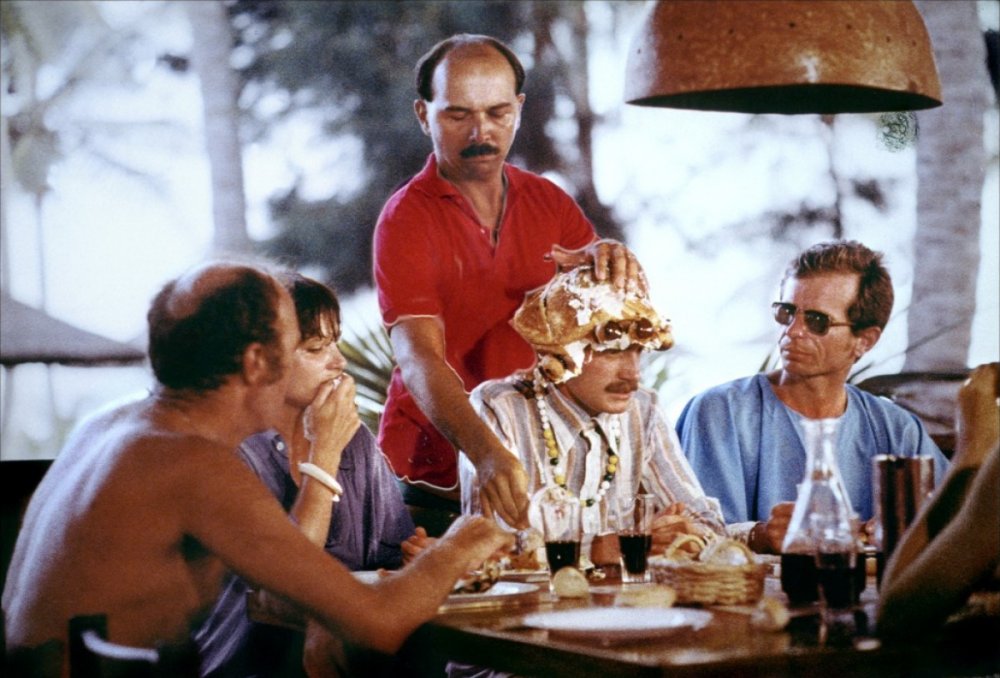
Les Bronzés (French Fried Vacation, 1978)
That particular style, originating in sketch comedy, would come to cast a long shadow over French comedy, featuring stock characters, attempts to get one’s end away, catchphrases. You can see the influence of the films in the popular Camping trilogy (2006-16) starring Franck Dubosc.
Of the Splendid troupe, Balasko would go on to make an interesting comedy in Gazon Maudit (1995), a frank and boundary-pushing lesbian-themed comedy, while Clavier would dominate popular French comedy through the 90s, in particular with Les Visiteurs (1993). With those two films, the pattern was set for many French comedies to come: a high-concept satire of the bourgeoisie, and a sort of anything-goes approach to attacking social norms.
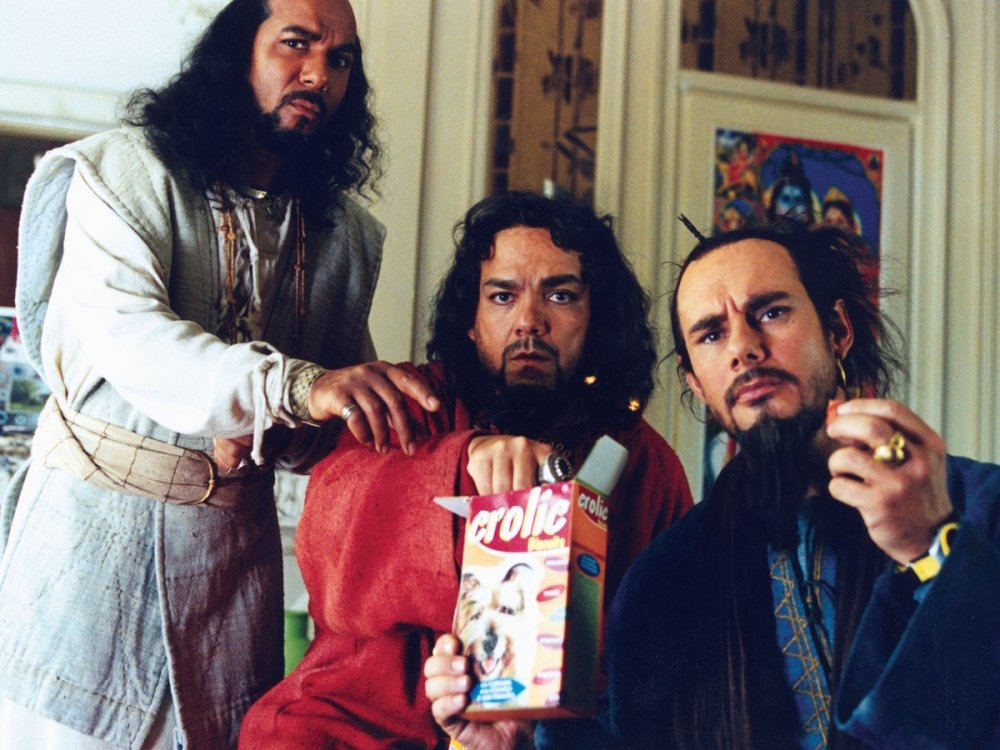
Les Trois Frères (The Three Brothers, 1995)
In the later 1980s there were two big TV comedy troupes. Les Nuls, featuring Alain Chabat and Chantal Lauby (also of Qu’est-ce qu’on a fait au bon Dieu?), made a preposterous and fun comedy with La cité de la peur (1994), which stands out for being purely goofy and meaningless. Les Inconnus meanwhile slotted more readily into the Splendid format with Les Trois Frères (The Three Brothers, 1995). The latter film, while not unfunny, had a tendency to tip into reactionary ideas with their TV material, and had a rather unworried attitude to race and sexuality. It was a hit, but the comedy was heavy and neutered for a big audience.
Later, in the 90s, the Les Robins des Bois company would seem to mash up Le Splendid and Les Nuls, being shepherded on screen by Les Nuls’ Chabat and Dominique Farrugia. Jean-Paul Rouve and Pierre-Francois Martin-Laval emerged as the two actors most keen to appear in big French comedies while, as with the earlier companies, the most interesting actors (like Marina Foïs) leant towards more critically acclaimed fare.
More recently, Jamel Debbouze, Gad Elmaleh, Eric et Ramzy and Omar et Fred shook up the comedy scene a little since breaking out in TV or stand-up. El Maleh’s Chouchou (2003; also starring Chabat) sold four million tickets, while La Tour Montparnasse infernale (2001) by Eric & Ramzy (also starring Foïs) sold two million.
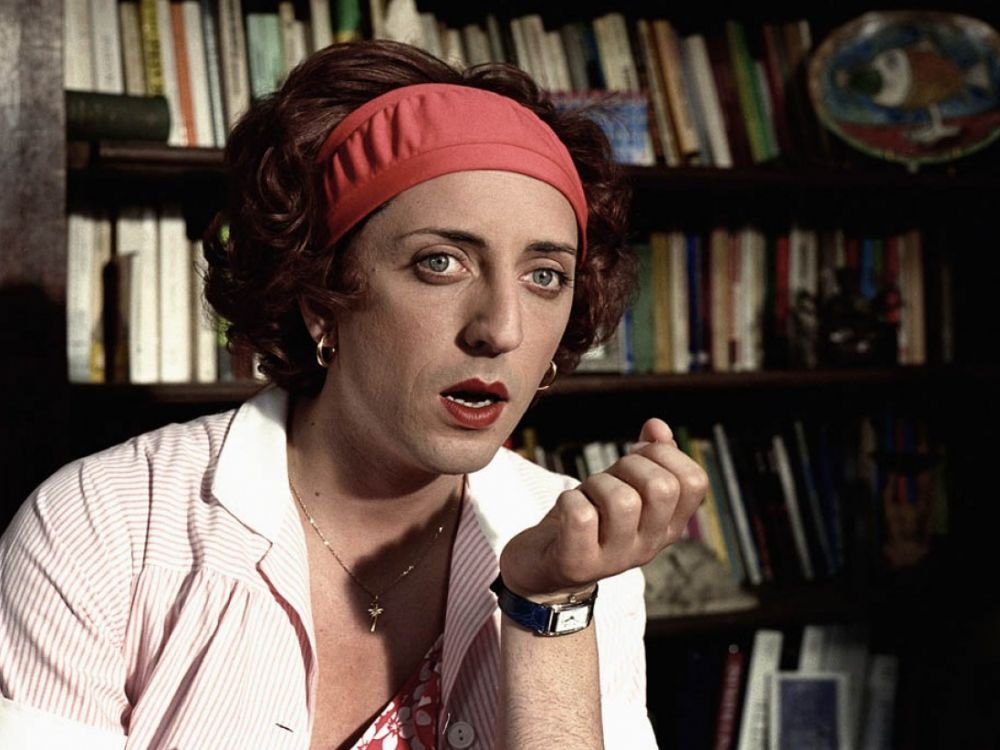
Gad Elmaleh in Chouchou (2003)
This overview yields three observations. Firstly, the roots of popular French comedy can be traced directly back to the late 1970s, and that actors and directors breaking out in the 70s and 80s still have a measure of creative control over work being made now. This accounts for a fusty, not to say retrograde, politics in current French comedies.
Secondly, this shows that there is a real clubbiness at play on the scene. For instance, a great many of the artists named here got their start on the cult TV channel and producer Canal +: Les Nuls, Les Robins des Bois, Jamel, Omar et Fred. This means that a kind of uniformity of tone has been installed for some time, and that there may be creative impediments to popular comedies really breaking ground, since the scene is in a kind of sclerotic state.
Finally, most of these artists broke out from sketch comedy, which gives an idea of the limitations of some of the high-concept storylines that they have originated. Someone such as Jean Dujardin, who got his break on the sketch series Un gars une fille, would go on to make Brice de Nice (2005), based on one of his popular sketch comedy characters.
Some aspects of current French comedy are less easily explained. Where did the vein of mockery and cruelty come from that seems to have been exacerbated recently? It seems to have been latent for a while. Le Splendid kicked things off with a caustic, satirical tone, and in the 1980s Etienne Chatiliez’s often brilliant but almost unbearably dyspeptic comedies cranked it up a notch. Life Is a Long Quiet River (La vie est un long fleuve tranquille, 1988) poked fun at the bourgeoisie and the lower classes with perhaps not equal ruthlessness, as it told the story of two children from different backgrounds who discover they were swapped at birth. The bourgeois family is portrayed as absurd and vain, but the wheedling, grasping lower classes in Chatiliez’s film can take the breath away once the laughter has died down.
Some French comedy springs from well-intentioned but perhaps misplaced ideals – in particular the idea that anything can and should be laughed at. While perhaps laudable in the era of Rabelais, and honourable in Charlie Hebdo’s cartoons, the principle falls apart in modern times because of an imbalance in perspective and privilege. It should be obvious that the Roma community does not have the same platform for telling stories or representing itself correctly as the white people who make comedies about them. Too many films fail to see that the lives of others don’t always make innocent fodder for cheap judgements or easy sport.
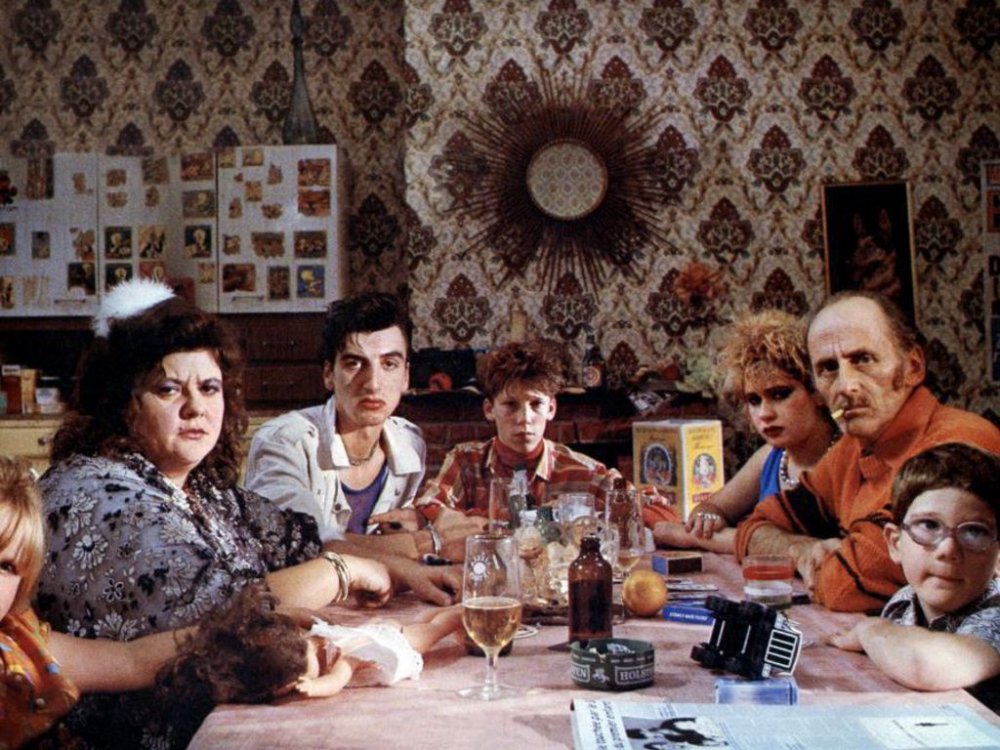
Life is a Long Quiet River (1988)
In 2005, the home office minister and future president Nicolas Sarkozy talked of cleaning the inner-city suburbs industrially, having called residents of La Courneuve “racaille” (rabble, or scum). His election, and subsequent enactment of a ban on covering the face, widely known as a ‘burqa ban’, showed that appeals to baser instincts work in politics.
It now looks as if a similar kind of idea began to take hold in comedy around the same time, conjuring this new era of politically reactionary and divisive filmmaking, which all the while makes an appeal to an audience that it is using its liberal prerogative to mock everyone on an equal pegging. The next French election will automatically shift the political dynamic, in a direction that is still too hard to call; the tensions of the campaign will remain long after the new president is in place. A shift in comedies, in what French audiences want to laugh at, will surely follow suit.
Early viewing figures for A bras ouverts, meanwhile, are strong but tracking nowhere near the all-conquering success of Qu’est-ce qu’on a fait au bon Dieu, perhaps signalling that people can only stomach so much hate.
-
The Digital Edition and Archive quick link
Log in here to your digital edition and archive subscription, take a look at the packages on offer and buy a subscription.




